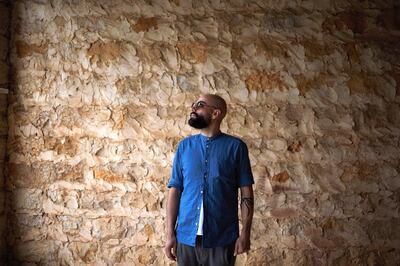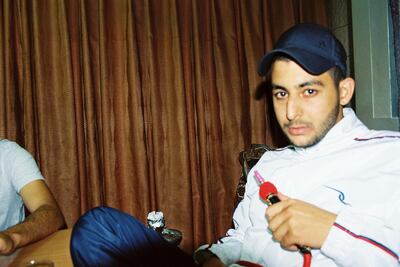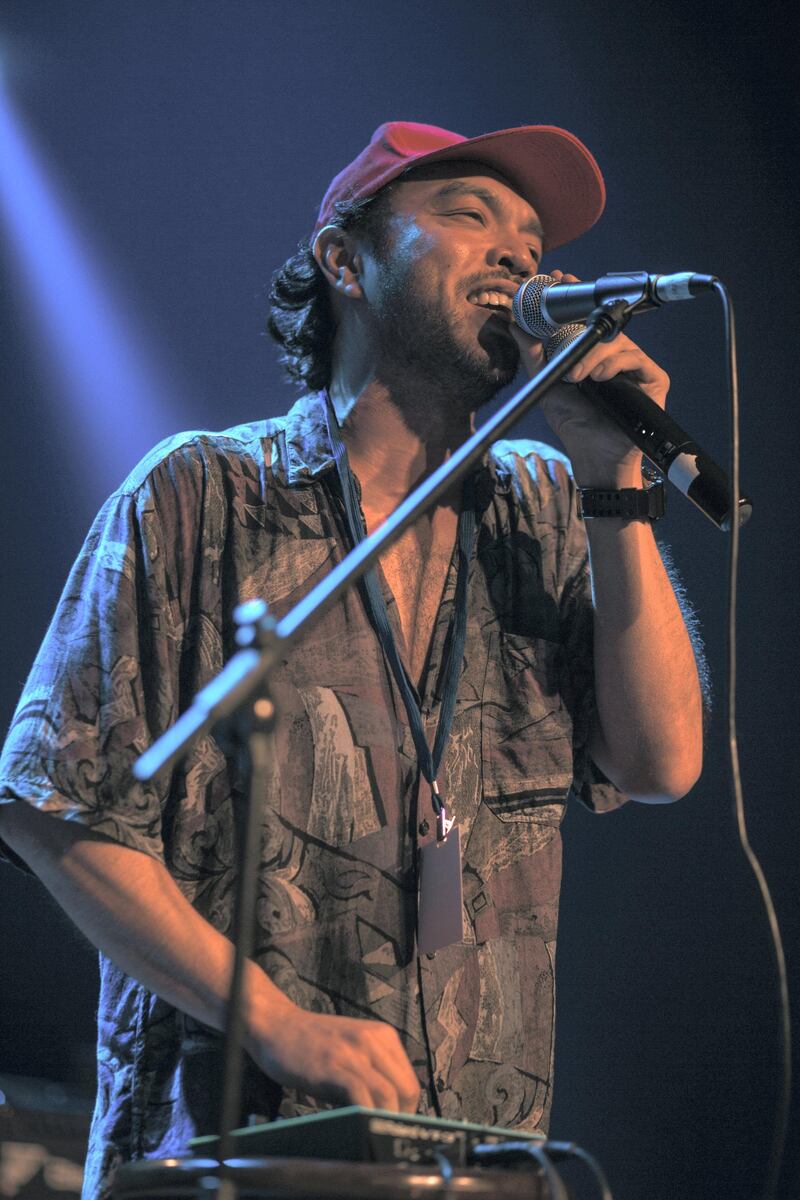Just like graffiti, hip-hop in the Arab world began as an import. But over the past decade, it has blossomed into a home-grown movement with its own sounds and stars – and a substantial online and physical following.
"Hip-hop is the most consumed genre of [alternative] music in the region right now," says Nasser Shorbaji, the Beirut hip-hop artist known as Chyno. One of the region's most prominent stars, the Syrian-Filipino rapper has helped to establish a strong scene in Lebanon and across the region, collaborating with artists from across the Arab world.

He is also the co-founder of The Arena, the largest battle-rap series in the Middle East. Now, he has teamed up with fellow rapper Mazen El Sayed, aka El Rass, to create Lebanon's first urban music festival. Beirut Scum Week – short for Beirut Street Culture and Urban Music Week – starts today and runs until Sunday.
What is Scum Week?
Scum Week includes graffiti tours, pop-ups, cultural talks, acoustic sessions and live performances, culminating in a live battle-rap event on the final night, featuring six or seven face-offs between the region's rap stars.
"We know that what we're bringing into the fold is something completely different and that the scene needs it right now, this show of power," says Chyno. "This is a stepping stone, the turning of a new page or a new leaf. Already the buzz that's been going on in the past few days in the hip-hop community is so crazy. I'm getting messages from all over the region."
Read More
[ The Arena: How battle rap music is helping to preserve the Arabic language ]
[ Da Arab MCs: Palestine's first hip-hop group on politics, feminism and their third album ]
[ Slave to Sirens: Lebanon’s first all-female metal band growls message of empowerment ]
The festival will start with a series of panel discussions about hip-hop in the Mena region, addressing the gaps between regional urban music and business, creativity and culture. These talks are part of the festival's aim to explore the scope and evolution of the local scene, spanning not only hip-hop but all kinds of urban music, including rock and other alternative genres, as well as related street cultures such as graffiti.
The festival has already received support and sponsorship from prominent companies who have worked with Chyno in the past. He hopes a successful first event will enable them to make the festival an annual one and allow them to expand its scope to include graffiti artists, street food and fashion, among other things.
"We have a lot of ideas but we ran into walls, especially on the financial front, because to a lot of corporations or businesses we are not the most lucrative demographic – and the point is we want to make it seem otherwise," he says. "They don't have the confidence yet but hopefully they will, and from there we can involve more artists."
What's on the bill?
On Wednesday , live performances will be held at AHM, the festival's largest venue, with a line-up including Chyno, Blu Fiefer – a Lebanese-Mexican singer, songwriter and producer – and The Synaptik, a prominent Jordanian rapper and singer. Thursday's event will take place in a more intimate setting at AR_KA in Mar Mikhael with album launches by Ta2irat El Rouh, a collective of four veteran Beirut rappers, and MOE, a young Lebanese rapper. The event will also feature a performance by Palestinian rapper Illiam, known for his intricate rhyme schemes and wordplay.

On Friday night, the festival teams up with the popular Beirut Groove Collective at KED, with a line-up of DJs including Palestinian artists Shabjdeed; Beirut-rap collective MSKH – which includes Syrian artist Darwish and Tripoli's El Rass; Palestinian rapper and producer Asifeh; and Lebanese battle rapper Muhandas. Chyno hopes creating line-ups that bring together different kinds of artists and collaborating with partners such as Beirut Groove Collective, which usually attracts a different kind of audience from the local hip-hop crowd, will help to expand the local scene.
A graffiti tour on Saturday afternoon engages with the street-art aspect of the festival, acknowledging the close ties between graffiti and hip-hop. The evening's event is an intimate acoustic night at Tota in Achrafieh, featuring The Synaptik, Darwish and Chyno, along with Palestinian rapper Mehrak, Lebanese composer, producer and sound designer Mme Chandelier and Syrian rock band Tanjaret Daghet.
The finale on Sunday is the battle rap, held at KED in Karantina. Is it likely to be the most-anticipated event for fans of the art form, which has grown rapidly in recent years. Rappers battling each other in Arabic – as opposed to English or French – has developed a strong regional following, as well as spearheading a new approach to styles, themes and topics, Chyno says.
It's 'basically poetry' that has yet to be defined
The Arena’s events are “geared into using hip-hop as artistic expression, not just a protest or anthem-based music that just reflects our political strife”, he says. “They’ve switched focus a little bit and they’ve made it more about the technical aspects of lyricism.”

The long-running tradition of Arabic poetry and spoken word means that adapting Arabic to rap is, in some ways, a natural evolution, Chyno says. As a culture of rapping in Arabic grows, regional rappers are adopting their own approaches to the taunts that characterise battle rap – and in America often involve insulting opposing rappers' mothers or sisters.
“We opened up that dialogue between the usage of language and Orientalism and misogyny,” says Chyno. “It’s a tool that’s engaging the Arabic language into something that’s a little more contemporary for the youths, because there are a lot of uses of metaphors and similes and onomatopoeias.”
He says the art form is "basically poetry" that has yet to be defined and simply resonates with young people in the region. "But apart from that there is a social awareness [aspect] because it opens up to the whole region, between Jordan, Lebanon, Palestine, Egypt," he says. "So there are lines that you cannot cross because of the cultural barriers.
"When the more western rappers who are from here cross lines that are very normal in the West, that opens up a huge debate."










